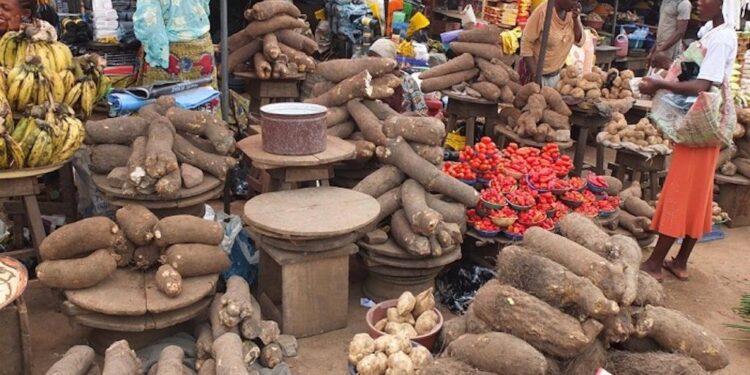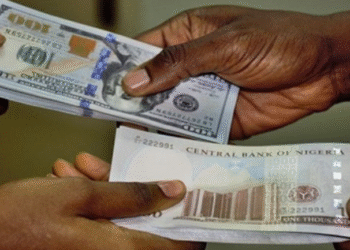The President of Christian Association of Nigeria (CAN), Archbishop Daniel Okoh, has urged Nigerians to persevere in the face of the current economic hardship in the country.
Okoh gave the charge, while fielding questions from newsmen on Wednesday, on the sidelines of the National Day of Prayer 2024 in Abuja.
The News Agency of Nigeria (NAN) reports that the interdenominational prayer with the theme, ‘In His Hands’, was organised by CAN to offer special prayers for the nation and its leadership in the face of its challenges.
The cleric urged Nigerians to continue to pray for policy makers and leaders at all levels for God to direct their hearts appropriately for the well-being of the citizens.
“By today’s prayer, the Lord will do something great, and the Lord will touch the hearts of those policymakers to enact policies that will touch the lives of the people positively.
“We are believing God and we are giving hope to our people, that we shall not die of this hunger.
“We shall survive it, this one too shall soon come to pass but we need to endure a little bit.
“And, we know that even at the point where we think that all our abilities have been exhausted and we have come to our wit’s end, that is when our God will come forth in form of power,” he said.
He advised the government to continue to be sensitive to the experiences of the people at this time, adding that the government would not also be happy if its citizens were suffering and experiencing hunger.
“No government will be happy and celebrating when his people are suffering and in hunger. It doesn’t give it a good name. And so, we know that the people in government are also feeling our pains.
“So, what I tell Nigerians is to continue to depend on God, as they do what is right.
“They must try at this time, as much as possible to remain accountable, to remain consistent in prayers, to remain transparent, and to remain persons of integrity,” he added.
The Guest Speaker, Prophet Isa El-Buba, urged Nigerians to seek God’s divine intervention through prayer as a path of national healing in these difficult times.
El-Buba emphasised the critical role of prayer and divine intervention in addressing the challenges faced by the nation, saying” the power to fix a nation comes from above through prayer.”
He noted that when leaders lacked the necessary wisdom, prayer could provide the insight needed to make righteous decisions and lead effectively.
According to him, prayer is not only the starting point but also the ultimate solution that can transform seemingly impossible situations.
He emphasised the crucial role of government in responding to the needs and voices of the people, by aligning their actions with the will of the populace.
“Leaders are seen as serving a higher purpose and guiding the nation towards positive change and healing.
“The only way our nation can be fixed is by divine intervention. We need the supernatural hand of God to rest on our leaders.
“We can see that when leaders are exhausted in terms of wisdom and knowledge, they need a supply of wisdom from above, and when wisdom comes, leadership begins to do what is right and proper.
“The message is that we prayed, and we asked God to release a new dimension of wisdom for our leaders to be able to lead the people right.
“When the head is alright, the whole body will be alright too,” he said.
The cleric urged President Bola Tinubu-led government to listen to the cry of the people as they were serving the interest of the people.
“The voice of the people is often said to be the voice of the Lord. When you listen to the heart of the people and respond to them by giving guidelines, the nation comes out from the challenges it is facing.” (NAN)








